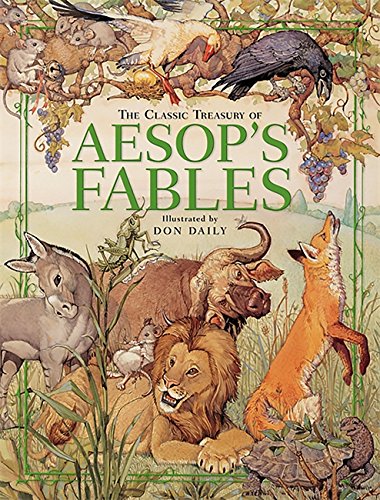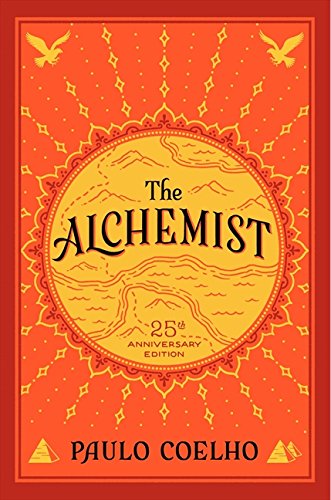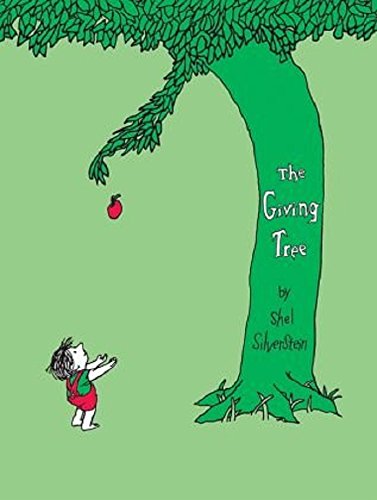Life's Big Questions Can Be Simple to Answer with Stories. Or Not.
Sometimes the smallest stories ask the biggest questions. Sometimes they even answer them. But most of the time, the best stories don't.
Fables are great stories to read to children. Fables are stories with a moral, usually told with animals as the characters. These stories help children know what to and not to do. Don't cry wolf. Slow and steady wins the race. Stories are an entry point for children to begin to internalize what is good and right and true. Children need to know boundaries and keep life pretty compartmentalized. Fables are a great resource for childhood lessons.
Adults don't always need things so spelled out to them. But we do enjoy allegories. Two well-known ones are "The Little Prince" and "The Alchemist". They both have voices of wisdom in a realistic enough of a setting for the reader to feel like the voices could be talking to them.
“Don't think about what you've left behind" The alchemist said to the boy as they began to ride across the sands of the desert. "If what one finds is made of pure matter, it will never spoil. And one can always come back. If what you had found was only a moment of light, like the explosion of a star, you would find nothing on your return.”
― Paulo Coelho, The Alchemist
“In those days, I didn't understand anything. I should have judged (the rose) according to her actions, not her words. She perfumed my planet and lit up my life. I should never have run away! I ought to have realized the tenderness underlying her silly pretensions. Flowers are so contradictory! But I was too young to know how to love her.”
― Antoine de Saint-Exupéry, The Little Prince
Did you know "The Little Prince" is the book that has been translated into the most languages except for religious texts? Humanity loves a good story that helps us know our truth.
And yet, there are a whole lot of fables and allegories written to communicate the writer's truth and they fall flat. Why?
I want to suggest, the reason for this is because the best fables and allegories are actually parables that don't provide the answers. Instead they act as mirrors for us. They help us see ourselves. That's where the alchemy is (see what I did there?). But when we try to apply what we see to be the truth for everyone, it doesn't work.
This is why the latest movie version of "A Wrinkle in Time" wasn't good. The moral was too heavy handed. The audience was spoon-fed what the movie makers felt the moral lessons needed to be. The magic of the story ended up buried under the agenda and it couldn't breathe.
When people hear the word, "parable", they might think of the parables of Jesus as recorded in the four gospels of the Bible. I think it's really important to realize that Jesus's parables often left his hearers perplexed. The moral lesson for them wasn't clear. Jesus's disciples often asked him to explain what the story meant. Isn't that interesting?
There's a famous children's story, "The Giving Tree" by Shel Silverstein, that I would call a modern day parable. And the debate continues about the story's meaning. If you've read it, what would you say? Is it a story about unconditional love or being utterly taken advantage of? Personally, I've always considered it a story about the stages of life and not preparing well for aging. Ha! See what I mean? I didn't find anyone else interpreting, "The Giving Tree" like I interpret "The Giving Tree" in a (albeit simple) Internet search. We see different things when we look in the mirrors of a well-written story. This is a good thing!
“Grown-ups love figures... When you tell them you've made a new friend they never ask you any questions about essential matters. They never say to you "What does his voice sound like? What games does he love best? Does he collect butterflies? " Instead they demand "How old is he? How much does he weigh? How much money does his father make? " Only from these figures do they think they have learned anything about him.”
― Antoine de Saint-Exupéry, The Little Prince
Be wary when people try to give you the "moral of the story". This is especially true in the stories you tell yourself where you are the main character. Only you, ultimately, get to decide the moral of your story (though strong and safe friends can definitely help).
“You will never be able to escape from your heart. So it's better to listen to what it has to say.”
― Paulo Coelho, The Alchemist
This week consider whether the stories you tell yourself and others leave enough room for interpretation.
Remember, discovering and experiencing good stories helps us live good stories. Have you moved on from fables to parables? Do you need to always be told or tell others, "And the moral of the story is..."
And tell me. What DO you think is the moral of the story of "The Giving Tree"? Please leave a comment! I would love to know!!
--------------
Do you need a fresh way to consider how to interpret the parables of Jesus? I highly recommend this book:




